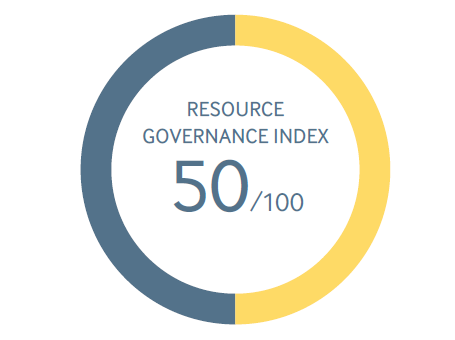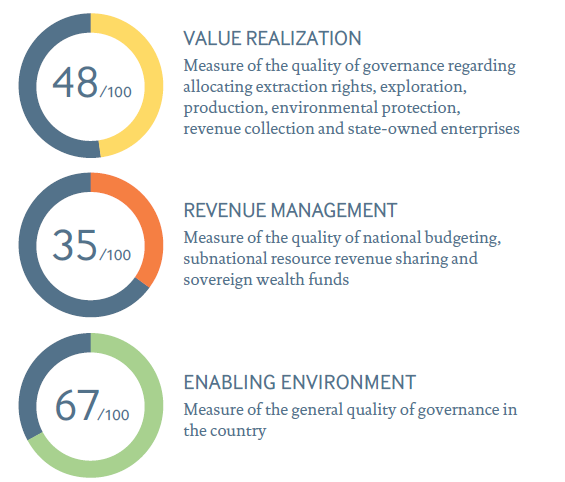
2021 Resource Governance Index: Tunisia (Mining)
Français »
Governance of Tunisia’s phosphate mining sector has scored 50 points in the 2021 Resource Governance Index (RGI), up by four points since the 2017 RGI. Minor improvements were registered across the index’s value realization and revenue management components, but problematic governance issues persist.
Key messages:
- Financial interest disclosures remain inadequate, with a lack of disclosures of public officials’ assets and companies’ beneficial ownership information.
- The governance of local impacts of the mining sector scored a “poor” 33 points, with no disclosures of environmental impact assessments and environmental mitigation plans.
- The state-owned Compagnie des Phosphates de Gafsa (CPG) demonstrated “poor” governance standards, with “failing” scores for financial reporting and commodity sales disclosures.
- Sporadic social unrest due to marginalization in the phosphate-rich Gafsa region has impacted phosphate production and highlighted sector governance weaknesses.
NRGI recommends the following course of action to improve mining governance in Tunisia:
- The Ministry of Industry, Energy and Mines should update its online portal to provide information on mining reserves and export revenues.
- The Ministry and CPG should improve transparency practices by publishing estimates of projections of resource revenues.
- The government should advance laws requiring the public disclosure of EIAs and environmental mitigation plans to facilitate oversight actors’ scrutiny of these practices.
- The government should enact Article 136 of Tunisia’s Constitution by implementing a subnational resource revenue sharing mechanism.
- The government should implement a robust financial interest and beneficial ownership disclosure policy to enhance transparency in the sector.
- The government and Ministry of Finance should prioritize accession to the Extractive Industries Transparency Initiative, and commit to standards pushing for enhance disclosures, sustainability, inclusivity and efficiency.
- The government should pass legal reform to the Mining Code to make the licensing process more transparent, pushing for open contracting standards including the disclosure of contracts, and the publication of official meeting minutes of the Consultative Mining Committee and other information.


